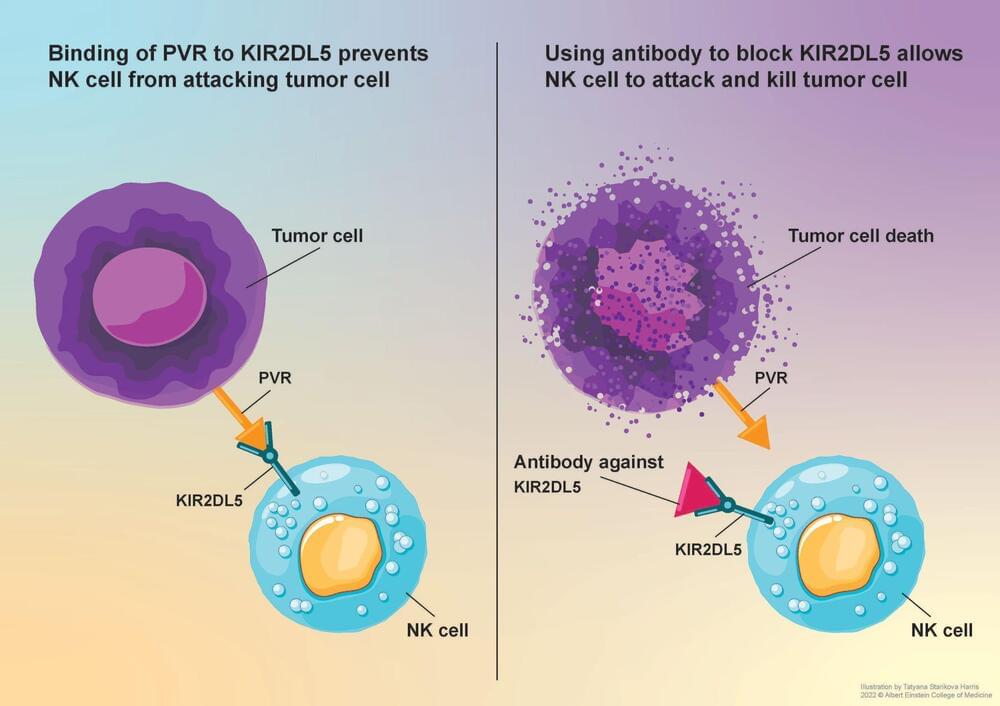Immune checkpoints are a normal part of the immune system. Their function is to prevent an immune response from being so powerful that it destroys healthy cells in the body. Immunotherapy drugs called immune checkpoint inhibitors, such as Keytruda and Opdivo, work by unleashing the immune system’s T cells to attack tumor cells. Their introduction a decade ago marked a major advance in cancer therapy. However, only 10% to 30% of treated patients experience long-term improvement.
Now, scientists at Albert Einstein College of Medicine describe findings that could bolster the effectiveness of immune-checkpoint therapy in a study published in The Journal of Clinical Investigation (JCI) on November 15.
Rather than rally T cells against cancer, the Einstein research team used different human immune cells known as natural killer (NK) cells. Their dramatic results were dramatic. “We believe the novel immunotherapy we’ve developed has great potential to move into clinical trials involving various types of cancer,” said study leader Xingxing Zang, M.Med., Ph.D. He is the Louis Goldstein Swan Chair in Cancer Research and professor of microbiology & immunology, of oncology, of urology, and of medicine at Einstein and a member of the Cancer Therapeutics Program of the Montefiore Einstein Cancer Center.










Comments are closed.